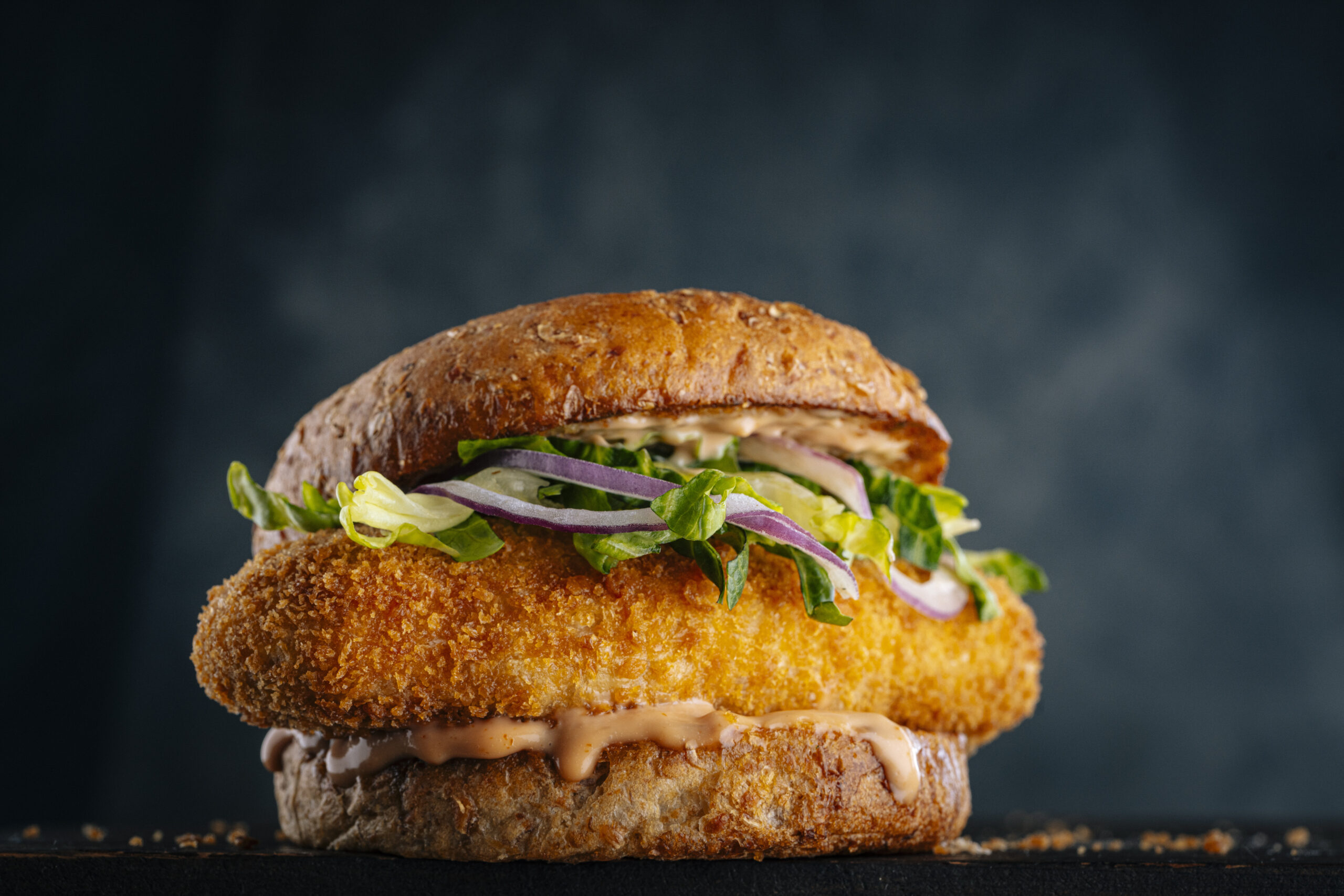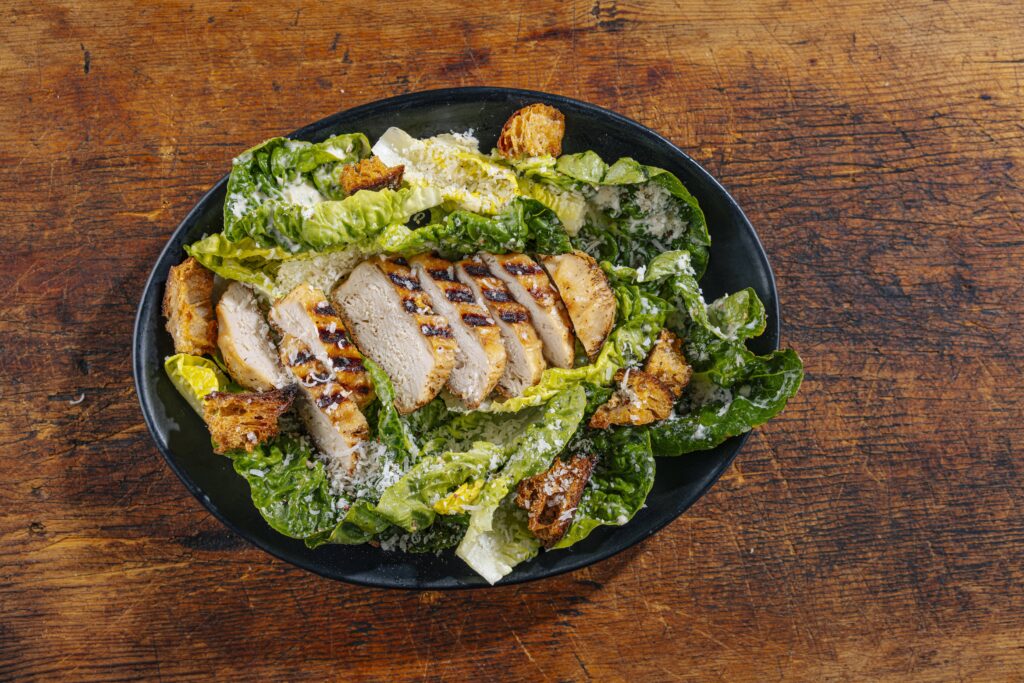French Whole-Cut Vegan Chicken Startup Umiami Rebrands to Swap & Makes Play for the US
4 Mins Read
Umiami, the Parisian startup making whole-cut plant-based chicken, is now called Swap, and has entered the US foodservice sector.
French plant-based meat company Umiami has rebranded to Swap, which it says is “a universal word, easy to understand, and works well for international audiences”.
“Swap perfectly represents our mission: to provide consumers with the opportunity to exchange their usual meat for a delicious and sustainable alternative, without compromising on taste or texture,” said co-founder and CEO Tristan Maurel. “Our new name is a call to action, encouraging consumers to make a positive choice for themselves and for the planet.”
The refresh coincides with the brand’s US launch, where it is targeting flexitarians via restaurants to encourage them to “swap” to a “new kind of chicken”. It has introduced the Swap Chicken, a whole chicken fillet alternative, at restaurants in Chicago.
Umisation tech enables clean-label meat analogues

The four-year-old startup, which has raised $107M in funding to date, relies on its Umisation texturising platform to produce whole-muscle replicas of conventional fillets like chicken and fish.
This involves a technique that transforms plant proteins into structured fibres without high heat or pressure. “This technology is the result of several years’ research and development, and uses plant matrices to produce a fibrous texture and control the size, direction and thickness of the resulting fibres,” the company told Green Queen last year.
“Umisation is an innovative protein texturing technology that is unique and specific to Umiami. It is the world’s first-ever process to be able to create – on a large scale – plant-based fillets that resemble pieces of animal meat: both in taste and texture,” they added.
The technology also allows the startup to produce plant-based meat with minimal ingredients, with the chicken using eight ingredients and no artificial flavours, colourants or texturisers.

This will likely resonate with Americans, who are looking for clean-label formulations amid the classification of meat analogues as ultra-processed (despite that label being separate from nutrition). Around 40% of the country’s consumers say they avoid ultra-processed foods and/or plant-based meats.
Meanwhile, half of people in the US now seek out clean-label packaged foods, while health is the major driver of overall food consumption, influencing how eight in 10 Americans eat. On the contrary, a sixth of respondents are dissuaded from trying meat analogues in a restaurant setting because they have too many ingredients.
And April, a decade-long proprietary study revealed that 99% of European manufacturers (like Swap) believe clean-label products are not just an advantage, but a cornerstone of their business strategy. In fact, over the next two years, these products are set to make up 70% of portfolios (up from 52% in 2021).
Swap Chicken on the menus at multiple Chicago restaurants

Swap’s chicken fillet has 21g of protein per 100g, and can be marinated, breaded, sliced, or cubed to be served either warm or cold. The company says it is also “priced comparably to boneless, skinless chicken breasts”, which enables it to help kitchens reduce both costs and food safety risks.
“We created a product that we believe will unlock the plant-based category for the mainstream consumer. Swap Chicken’s superior taste, clean ingredients and unrivalled product versatility finally enable chefs to recreate traditional recipes using only plant-based ingredients,” said Maurel.
Among the Chicago restaurants Swap has partnered with The Chicago Diner, Spirit Elephant, Soul Veg City, Majani, Duke’s Alehouse, and Clucker’s Charcoal Chicken, while it is also on the menu of SteMartaen Vegan Catering. “We believe Swap Chicken will elevate menu possibilities, making it easier than ever to Swap animal meat for plant protein,” Maurel said.
The company opened a 14,000 sq m facility in the Alsace region earlier this year, backed by local and federal government funding, which can produce 7,500 tonnes of plant-based meat annually, eventually rising to 20,000 tonnes. Swap says the rebranding also allows it to expand beyond chicken fillets to all kinds of meat and fish analogues, broadening its future product development plans.
“Our rapid growth opens up new opportunities for expansion, while staying true to our commitment to simple ingredients and authentic recipes,” said Maurel.
It comes amid a flurry of positive developments for France’s plant-based sector – this month alone, fellow Parisian plant-based meat maker La Vie closed a €25M investment round, McDonald’s debuted its first vegan product in the country with Beyond Meat‘s chicken, and the EU’s top court rejected France’s attempted ban on meat-related terms on vegan packaging labels.



